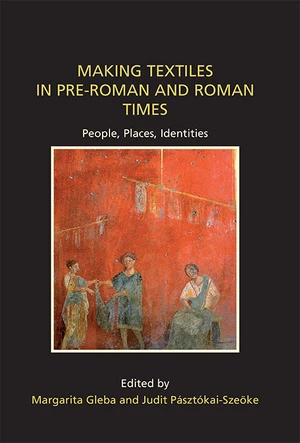Textile production is an economic necessity that has confronted all societies in the past. While most textiles were manufactured at a household level, valued textiles were traded over long distances and these trade networks were influenced by raw material supply, labour skills, costs, as well as by regional traditions. This was true in the Mediterranean regions and Making Textiles in pre-Roman and Roman times explores the abundant archaeological and written evidence to understand the typological and geographical diversity of textile commodities. Beginning in the Iron Age, the volume examines the foundations of the textile trade in Italy and the emergence of specialist textile production in Austria, the impact of new Roman markets on regional traditions and the role that gender played in the production of textiles. Trade networks from far beyond the frontiers of the Empire are traced, whilst the role of specialized merchants dealing in particular types of garment and the influence of Roman collegia on how textiles were produced and distributed are explored. Of these collegia, that of the fullers appears to have been particularly influential at a local level and how cloth was cleaned and treated is examined in detail, using archaeological evidence from Pompeii and provincial contexts to understand the processes behind this area of the textile trade.
Price history
Oct 25, 2021
€28.87

